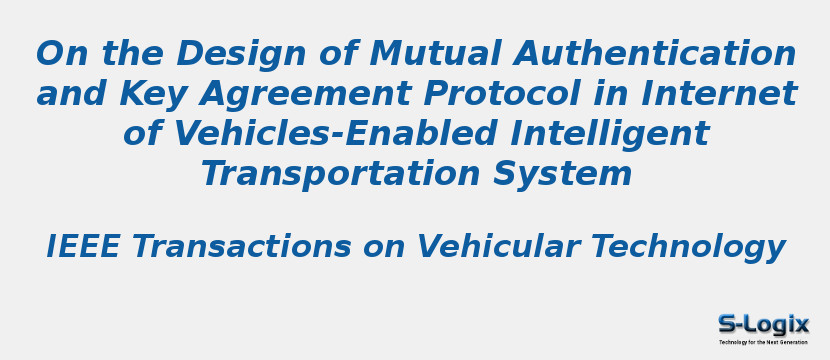Research Area: Vehicular Ad Hoc Networks
Internet of Vehicles (IoV), a distributed network involving connected vehicles and Vehicular Ad Hoc Networks (VANETs), allows connected vehicles to communicate with other Internet-connected entities in real time. The communications among these entities (e.g. vehicles, pedestrians, fleet management systems, and road-side infrastructure) generally take place via an open channel. In other words, such an open communication can be targeted by the adversary to eavesdrop, modify, insert fabricated (or malicious) messages, or delete any data-in-transit; thus, resulting in replay, impersonation, man-in-the-middle, privileged-insider, and other related attacks. In addition to security, anonymity and untraceability are two other important features that should be achieved in an authentication protocol. In this paper, we propose a new mutual authentication and key agreement protocol in an IoV-enabled Intelligent Transportation System (ITS). Using both formal and informal security analysis, as well as formal security verification using an automated verification tool, we show that the proposed scheme is secure against several known attacks in an IoV-enabled ITS environment. Furthermore, a detailed comparative analysis shows that the proposed scheme has low communication and computational overheads, and offers better security and functionality attributes in comparison to seven other competing schemes. We also evaluate the performance of the proposed scheme using NS2.
Keywords:
Author(s) Name: Palak Bagga; Ashok Kumar Das; Mohammad Wazid; Joel J. P. C. Rodrigues; Kim-Kwang Raymond Choo; YoungHo Park
Journal name: IEEE Transactions on Vehicular Technology
Conferrence name:
Publisher name: IEEE
DOI: 10.1109/TVT.2021.3050614
Volume Information: Volume: 70, Issue: 2, Feb. 2021
